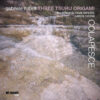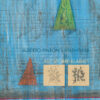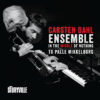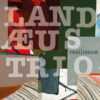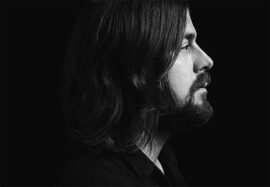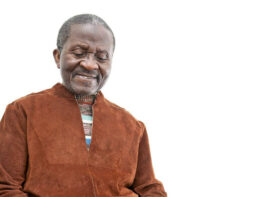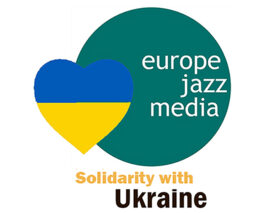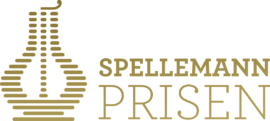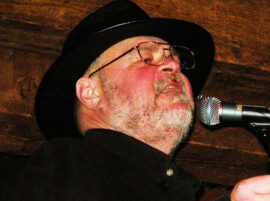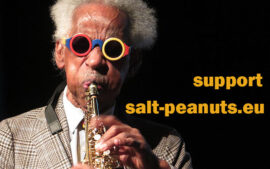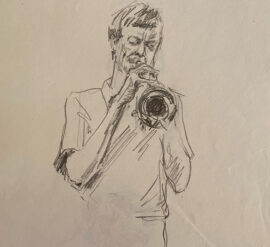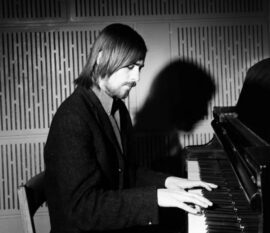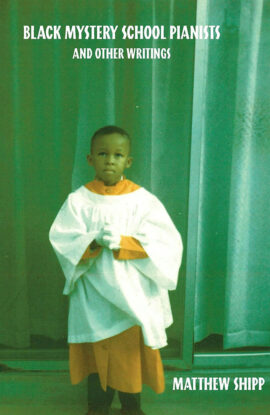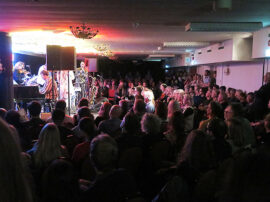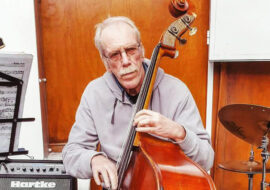
«Det försvunnas namn» (The Name of That Which is Lost) is the final part of the trilogy of solo projects of Swedish prolific sax player and sound artist Martin Küchen. The previous parts were «Hellstorm (Man Erkennt Langsam Das Elend, Das Über Uns Gekommen Ist.)» (Mathka, 2012) and «Lieber Heiland, laß uns sterben» (Sofa Music, 2017). In this trilogy, Küchen enriches his suggestive sonic explorations by incorporating thematic elements, shaped by and out of realities, living and artistic – musical, sound-oriented, poetic, and referencing historical events, including of Küchen’s family, thus generating a powerful and unsettling emotional impact.
On these technically solo projects, Küchen uses speakers built into the saxophones, from which the listener can hear music from other sources. The sources include quotes of Antonio Vivaldi and Gelen Gould’s version of Johan Sebastian Bach’s «The Well-Tempered Clavier», recordings of Chris Watson of animals (taken from «Outside the Circle of Fire», Touch, 2017), an Indian tambura, and the voice of Leon Trotsky from the early 1920s when he was well-positioned in the Soviet hierarchy. «Det försvunnas namn» was recorded at the historic Klosterkyrkan, in Küchen’s hometown Lund, in August and November 2019, by fellow sound artist and recording engineer Jacob Riis, who recorded before the previous parts of this trilogy.
«Det försvunnas namn» begins with the mournful, meditative, and highly resonant «I», where his expressive sax playing soars over layers of tambura sounds. He investigates distinct extended breathing and whispering techniques on the restless «The wind of the unborn», «Sheer life asleep» and «Unexit here». He adds his ipod, playing Vivaldi’s Violin Concerto in C major, RV 178, and contrasts the harmonious theme with urgent, playing on the title piece, suggesting a sense of unease and a world-out-of-balance.
The aptly-titled «Hippopotami mit Mensch» is a duet of Küchen sax and a recording of a voice of Hippopotamus, apparently both find a surprisingly common language. He creates fast, machine-like eruptions on «Wasser töten, Luft töten» and deepens this industrial vein on the enigmatic and poetic «Lilla Atem choir».
His ipod is used again as a distant background for Küchen’s twisted and distorted abstractions of the melody on «Ditt öga i mitt öga sluter sitt stjärnvalv». The mournful meditation, with the voice of Trotsky, «The 5th of December 1931 02.00 AM» relates to the exact time when the Cathedral of Christ the Saviour in Moscow was demolished to be replaced by The Palace of the Soviets, but its building was never completed. Both pieces evoke dire images of opression where only music offers some rays of hope.
The bonus track «Die Katze von Bach», available only on the digital version of the album, uses a distorted recording of Gould playing Bach’s «Well-Tempered Clavier» and radio static, but now Küchen is the one who plays beautifully the melody in an openly emotional and nostalgic manner, almost as a mainstream jazz theme.
Küchen creates provocative music, sometimes even threatening and disturbing one, but always impressive and essential. He captures faithfully the soundtrack of our time, unbalanced, immoral and wasteful times, that may bring our world to the verge of extinction.
Eyal Hareuveni
Martin Küchen (bs, as, ss, speakers, ipod)

